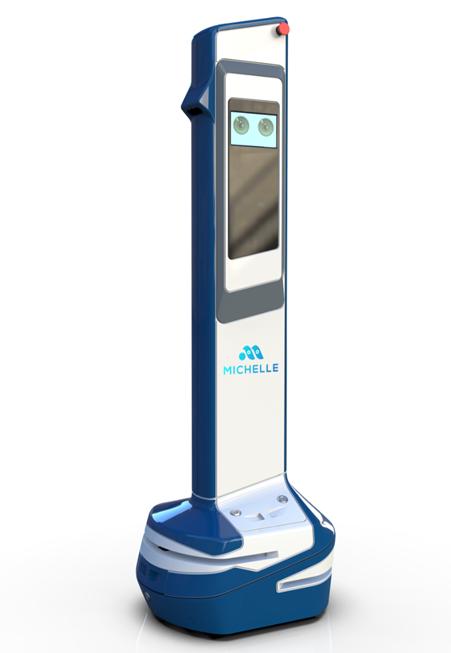
Credit: Skoltech
Researchers from Skoltech’s Intelligent Space Robotics Lab have proposed a novel method for customer behavior analytics and demand distribution based on Radio Frequency Identification (RFID) stocktaking. Their research was published in the proceedings of the International Conference on Control, Automation, Robotics and Vision (ICARCV).
Autonomous robotic systems that already pervade our daily lives are faced with a host of challenging tasks, such as stocktaking in a rapidly changing environment.
A Skoltech team led by Professor Dzmitry Tsetserukou from the Skoltech Space Center (Intelligent Space Robotics Lab) has proposed a novel method that helps build models depicting location-related demand dependencies and precise locations of lost and moved items. The robot capable of reading RFID tags with an accuracy of 0.3 m keeps an eye on shoppers, takes note of the locations they find the most attractive, and predicts demand, thus giving useful tips to the retailer on where it is best to place an item in order to increase sales and profits.
“Existing solutions lack applicability to real-life situations in retailing, which may result in an unforeseeable loss of sales. Our solution provides the retailer with exhaustive information about demand distribution by using a mobile robot for autonomous stocktaking at RFID-equipped stores. Our research stands apart from other related works due to the mere size of the underlying set of real-world data we collected in the span of over 10 months,” says one of the developers from Skoltech Space Center, Alexander Petrovsky.
“At Skoltech, we have developed Michelle, an RFID-capable autonomous robot for Decathlon stores, that helps considerably reduce the number of RFID-reading errors caused by the human factor and make the inventory faster and cheaper. We came up with an idea to benefit from big data collected over 10 months of the robot’s operation at the store. Specifically, we wanted to estimate the tag density change over the entire purchase area. First, we proposed a probabilistic model for estimating tag locations with an accuracy of 0.3 meters and then constructed the hit map of the tag density dynamics which clearly shows the maximum and minimum purchase quantity areas. These findings are very important for retailers in relocating the goods in order to maximize sales profits and predict seasonal demand profiles,” Skoltech Professor Dzmitry Tsetserukou comments.
The new approach can be used in any retail space equipped with the RFID technology.
###
Skoltech is a private international university located in Russia. Established in 2011 in collaboration with the Massachusetts Institute of Technology (MIT), Skoltech is cultivating a new generation of leaders in the fields of science, technology and business, is conducting research in breakthrough fields, and is promoting technological innovation with the goal of solving critical problems that face Russia and the world. Skoltech is focusing on six priority areas: data science and artificial intelligence, life sciences, advanced materials and modern design methods, energy efficiency, photonics and quantum technologies, and advanced research. Web: https:/
Media Contact
Ilyana Zolotareva
[email protected]
Original Source
https:/
Related Journal Article
http://dx.




